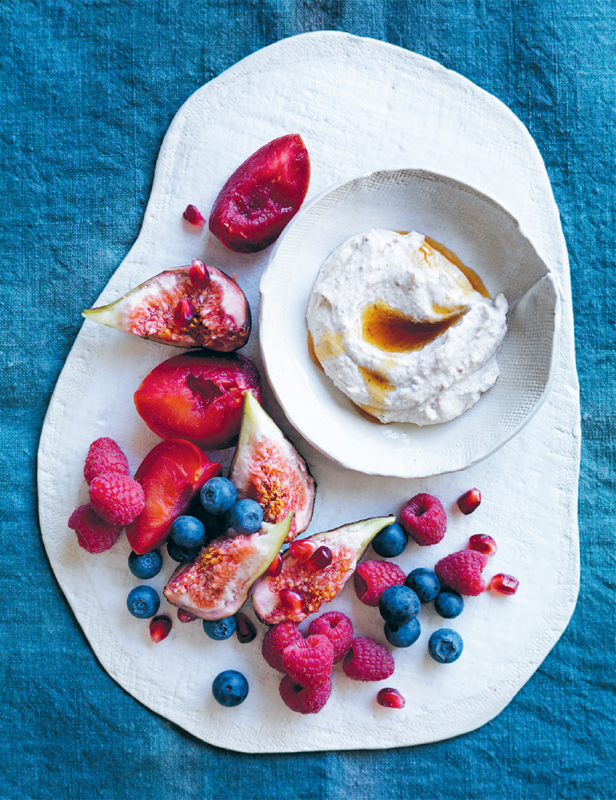

Fresh fruit with cinnamon ricotta yoghurt
Serves 4


This cinnamon ricotta yoghurt turns a plate of fruit into a delicious, balanced breakfast. Feel free to use whichever local fruits are in season.
If you have a baby, offering him smaller pieces of fruit, such as blueberries and pomegranate, is a great way to help develop his ‘pincer grasp’. This involves picking up an object between his thumb and forefinger and happens when he is about 9 months old.
250 g (9 oz/1 cup) Greek-style yoghurt
250 g (9 oz/1 cup) fresh ricotta (see Soft cheeses)
1 tablespoon wheatgerm
1 tablespoon LSA
1–2 tablespoons maple syrup, plus extra to serve (optional – omit for baby's serve)
1 teaspoon ground cinnamon
½ pomegranate
2 fresh figs, quartered
2 plums, quartered and stones removed
125 g (4½ cup) fresh blueberries
125 g (4½ oz/1 cup) fresh raspberries
Place the yoghurt, ricotta, wheatgerm, LSA, maple syrup (if using) and cinnamon in a food processor and process until fluffy and smooth.
Remove the seeds from the pomegranate, discarding the skin. Arrange the fruit on a serving plate and serve with the ricotta yoghurt. Drizzle a little extra maple syrup over the top, if liked.
Baby’s serve: for a younger baby, blend the ricotta yoghurt, blueberries and raspberries to a smooth purée. If using plums and figs, you may prefer to peel the skins first. Omit the pomegranates as their seeds can be difficult to blend. For an older baby, serve as is, chopping fruit into smaller pieces to eat as finger food.
Toddler’s serve: serve as is.
Soft cheeses Ricotta and other soft cheeses, such as feta, are considered a high-risk food in terms of contamination with listeria bacteria. As such, pregnant women are advised not to eat them. You can give soft cheeses to healthy babies over 6 months of age, however, you should be careful when purchasing and storing them. Make sure they’re very fresh, packaged hygienically (in a sealed packet) and stored in the refrigerator. Don’t re-serve any unfinished portions.
